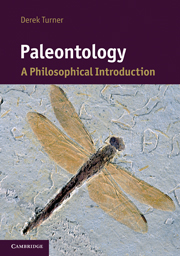Book contents
- Frontmatter
- Contents
- List of figures
- Acknowledgments
- 1 Introduction
- 2 A new way of seeing the fossil record
- 3 Punctuated equilibrium
- 4 Species and macroevolution
- 5 The case for species selection
- 6 Real trends, relative progress
- 7 Dynamics of evolutionary trends
- 8 Evolutionary contingency
- 9 Diversity, disparity, and the Burgess Shale
- 10 Molecular fossils
- Bibliography
- Index
1 - Introduction
Published online by Cambridge University Press: 05 June 2012
- Frontmatter
- Contents
- List of figures
- Acknowledgments
- 1 Introduction
- 2 A new way of seeing the fossil record
- 3 Punctuated equilibrium
- 4 Species and macroevolution
- 5 The case for species selection
- 6 Real trends, relative progress
- 7 Dynamics of evolutionary trends
- 8 Evolutionary contingency
- 9 Diversity, disparity, and the Burgess Shale
- 10 Molecular fossils
- Bibliography
- Index
Summary
A world without fossils
Imagine a planet almost exactly like ours, but with one crucial difference: it has no fossils. Call this imaginary planet Afossilia. Afossilia and Earth harbor the very same kinds of living things, from ferns to human beings to E. coli bacteria. Both planets have the same surface features and the same types of rocks. And both have experienced exactly the same evolutionary histories, with the same species evolving and going extinct at exactly the same time. We can even suppose that you and I have counterparts living on Afossilia – that is, that there are people there who are exactly (or almost exactly) like us.
Some Biblical literalists hold that God placed fossils in the rocks in order to test our faith in scripture. I invite you to join me now in thinking about a simple inversion of this familiar idea: what if God – or if not God, then some more sinister spirit – systematically removed all the fossils from the rocks just before (Afossilian) humans evolved and began to study the world around them. Afossilia has no fossilized footprints, leaf imprints, shells, pollen, teeth, bones, coprolites (fossilized feces), or any of the remains of ancient organisms that we on Earth can see on display in natural history museums.
- Type
- Chapter
- Information
- PaleontologyA Philosophical Introduction, pp. 1 - 15Publisher: Cambridge University PressPrint publication year: 2011
- 1
- Cited by

